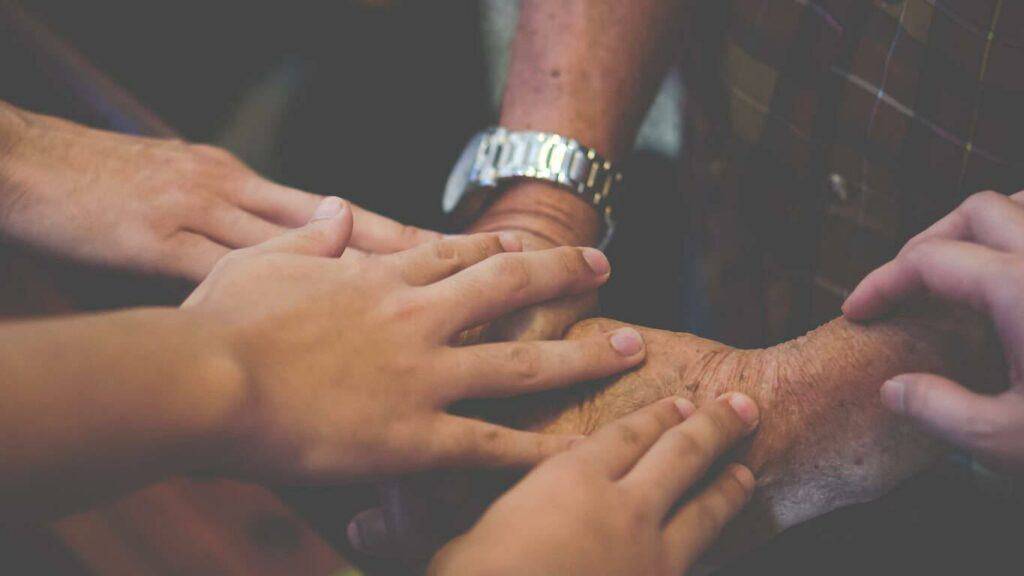Life-limiting illness is not easy to deal with. It can drastically change our way of living, present us with many daily challenges, and require time and dedication.
The hospice care team lends a helping hand in such times. Hospice care is specialized care for people experiencing a serious illness that may limit their lifespan.
There are several reasons why you or your loved one might need hospice care. If you are suffering from an illness that doctors believe will not improve and might lead to the end of your life, hospice care can provide comfort and support. This type of care focuses on making you or your beloved feel as comfortable as possible by managing your pain and symptoms and providing emotional support.
Hospice care is all about improving one’s quality of life, helping you live as fully and comfortably as possible in your final days. It also supports the whole family, offering guidance, counseling, and help in understanding and coping with the situation.
Some people choose hospice care because, at the end of their life, they want to be at home with their family, in the comfort of their bed, instead of in an impersonal hospital environment.
The Importance of The Hospice Team
Hospice care is provided by a team of professionals, volunteers, and family members. They work together to deliver personalized, compassionate support to you and your family member dealing with a life-limiting illness. Teamwork is important so that they can deliver the following:
Multidisciplinary Approach
A comprehensive hospice team comprises various professionals, including physicians, nurses, social workers, chaplains, counselors, therapists, caregiver aides, and volunteers. Each brings their unique expertise, skills, and perspectives to address your or your loved one’s physical, emotional, spiritual, and psychosocial needs, ensuring well-rounded care and support.

Personalized Care
The hospice team’s diverse skills and knowledge allow for individualized care plans tailored to each patient’s preferences, values, and goals, promoting comfort, dignity, and quality of life throughout the end-of-life journey.
Continuous Support
Continuous support, guidance, and education to patients, families, and caregivers are paramount. The hospice team can assist everyone involved in navigating the complexities of terminal illness, making informed decisions, managing symptoms, coping with grief and loss, and finding meaning, peace, and closure during this challenging time.
Coordination and Collaboration
The hospice team works together to ensure everyone is on the same page, communicating well and coordinating care smoothly. This helps provide consistent care, address any issues that arise, adapt care plans when necessary, and create a unified approach to taking care of patients.

Emotional and Spiritual Guidance
Emotional, spiritual, and psychosocial support provided by chaplains, counselors, social workers, and volunteers is crucial for patients and families to navigate the heart-rending aspects of dying. These services foster connections, facilitate meaningful conversations, promote acceptance, peace, and healing, and enhance overall well-being and quality of life especially when all are involved, especially those who are front and center and those closest to everyday needs, such as caregivers.
Symptom Management
The clinical expertise of physicians, nurses, and therapists in pain and symptom management ensures that you or your loved one receive effective and compassionate care to alleviate discomfort, manage symptoms, control pain, enhance comfort, and improve the overall quality of life. This can only be achieved with those closest can be the main advocates while you remain at home or in a familiar environment surrounded by loved ones whenever possible.
Bereavement Support
After the patient’s death, the hospice team continues to offer bereavement support and counseling to families and caregivers, assisting them in processing grief, coping with loss, finding meaning, and adjusting to life after the loss of a loved one, promoting healing, resilience, and emotional well-being.
Who Is Who On The Hospice Team
A good hospice team typically includes individuals from various walks of life who are immediately closest, who work together to provide comprehensive care and support for patients and their families.
Hospice team members collaborate to create a personalized care plan that addresses the physical, emotional, spiritual, and practical needs of the patient and their family.
Their goal is to ensure that the patient’s final days are as comfortable and meaningful as possible while also providing support and guidance to the family during this challenging time. Because not all life ends exactly when expected, it is important to allow the journey to occur as naturally, and as pleasantly as possible, regardless of personal individual opinions.
This team often consists of:
Hospice Nurse
A registered nurse specially trained in end-of-life care who provides medical care, manages symptoms, and coordinates with other healthcare professionals.
The Hospice nurse provides skilled nursing care tailored to the patient’s needs. They manage your pain and other symptoms, administer medications, coordinate care with other healthcare providers, educate you and your family about the disease process and care needs, and provide emotional support.
Often, hospice nurses can provide information on what to expect when death is near and inform the family on time so they can be with their loved ones to say goodbye.
Caregivers
These may include family members, friends, or professional caregivers who assist with daily tasks, provide emotional support, and help maintain the patient’s comfort and dignity. Oftentimes they are the closest to the situation.
The caregiver’s role is to assist with daily activities and provide emotional support. They help with personal care needs like grooming, bathing, meal preparation, mobility assistance, and companionship. Caregivers play a vital role in maintaining the patient’s comfort and dignity including advocating during end of life decisions.

Wellness Liaison or Social Worker
This professional is the connecting link between a patient’s desires, needs, and the available resources, private care agencies, and available government services. They can provide counseling, connect families with community resources, and assist with advance care planning.
Family Members
The patient’s family plays a crucial role in the hospice team, offering emotional support, making care decisions, and being actively involved in the patient’s care and well-being.
Family members are encouraged to participate actively in the care team and provide emotional support to the patient. Their role is to advocate for the patient’s wishes, assist with daily care tasks, spend quality time with the patient, and help make decisions about care and treatment options.
Hospice Physician
A palliative care doctor develops and reviews the patient’s care plan, consults on complex medical issues, and works closely with the hospice nurse and other team members to ensure the patient’s comfort and well-being.
As part of their responsibilities, the physician evaluates the patient’s condition, prescribes medications, provides guidance on symptom management, and communicates with the patient’s primary care physician.
Chaplain
A spiritual counselor can offer comfort and help us process end-of-life thoughts that occur when we are confronted with a life-threatening illness.
Chaplain or Spiritual Counselor provides spiritual and emotional support based on your beliefs and values. The relief of prayer and spiritual guidance can be immense during the harrowing time of approaching the end of life. Spiritual counselors facilitate religious or cultural rituals as desired by the patient and family.

7. Volunteers
Hospice volunteers and friends can offer companionship and support to patients and respite to their families. Their responsibilities may include visiting patients to provide social interaction, running errands, assisting with light housekeeping, and offering a compassionate ear or a shoulder to cry on to both patients and their families.
Each member of the hospice team plays a unique and essential role in providing comprehensive care and support during the end-of-life journey. Collaboration among team members ensures that the physical, emotional, spiritual, and practical needs are met with compassion and professionalism.
What A Day In Hospice Care May Look Like
While in hospice, your care will be centered around providing comfort, support, and quality of life. Here is what you can expect from a typical day in hospice care:
In the morning:
- Patient Assessment: A member of your hospice team will assess your condition, reviewing vital signs and monitoring symptoms to ensure you are comfortable and your pain is managed effectively.
- Personal Care: A hospice nurse or assistant will tend to your personal care needs, such as bathing you or helping you get dressed while respecting your dignity, privacy, and preferences.
- Medication Management: A nurse will administer prescribed medications that help you manage symptoms, alleviate pain, control nausea, and address other discomforts to enhance your comfort and well-being.

Throughout the Day:
- Therapeutic Activities: If you are in a hospice care facility, hospice staff may engage you in therapeutic activities, such as music therapy, art therapy, pet therapy, or reminiscence therapy, to provide emotional support, stimulate cognitive function, encourage expression, and promote relaxation and comfort. If you are receiving hospice care at home, your caregiver can involve you in a recreational activity of your choice.
- Nutritional Support: Many people have special dietary needs when battling a life-limiting condition, such as cancer. Your caregiver can prepare and serve nutritious meals and snacks tailored to your needs, preferences, and restrictions, as it is paramount you receive adequate nutrition, hydration, and comfort.
In the Afternoon:
- Family Visits: Families and loved ones can visit you, spend quality time together, engage in conversation, share memories, express love, gratitude, and support, and participate in care activities and decision-making processes, fostering connection, comfort, and companionship.
- Care Coordination: Typically, at this time of day, hospice team members collaborate, communicate, and coordinate care, discussing your progress, and adjusting care plans as needed. They may also inform you and meet with your family to address any concerns, provide education, guidance, and support, and ensure continuity and consistency in care delivery.

- Palliative Treatments: To prepare you for a comfortable evening and night, your physician or nurse practitioner may provide palliative treatments, interventions, or therapies, such as wound care, respiratory support, symptom management, or other medical procedures.
In the Evening:
- Comfort Care: Hospice staff provides comfort care, focusing on getting you relaxed, comfortable, and at ease. Your caregiver may offer a warm blanket, play soothing music, dim the lighting, or suggest aromatherapy, massage, or other comfort measures to create a peaceful, calming, and serene environment conducive to rest, relaxation, and sleep.
- Family Support: It is within the hospice team members’ responsibilities to provide ongoing support, counseling, and resources to your family and caregivers. Chaplains, Liaisons, and other people on the hospice team will be there to address the emotional, spiritual, practical, and end-of-life concerns of your relatives, facilitate discussions about grief, loss, and funeral planning, and provide guidance, comfort, and encouragement during this challenging time.
- Night Care: Provided at a hospice care facility, overnight staff continues to monitor patients, manage symptoms, provide care, support families, and ensure the patient’s comfort and safety throughout the night, responding to needs, concerns, or emergencies as they arise.
Your Takeaway
Hospice care emphasizes compassionate, personalized, holistic, and family-centered well-being throughout the day, whether in the comfort of one’s home or a specialized care facility.
Rather than curative treatment, the focus here is on enhancing your quality of life, promoting dignity, honoring choices, values, and preferences, and providing support, comfort, and peace.
The care team includes but is not limited to, hospice or palliative care nurses, family members, caregivers, social workers, and chaplains who collaborate to address physical, emotional, spiritual, and practical needs.
Hospice care team members are skilled in facilitating a meaningful and comforting end-of-life experience for terminally ill patients and their families during this sacred and profound journey.
A day in their care typically involves assessments, personal care, medication management, therapeutic activities, family visits, and comfort care. The goal is to enhance quality of life and provide much-needed support.
If you or someone you love can benefit from such services, don’t hesitate to contact Amy’s Eden Senior Care. As an establishment with a great reputation, we assure you of the utmost professionalism of our staff members. They will become your second family and guide and support you during this challenging time. Reach out to us today because you or your loved one deserve the best!




